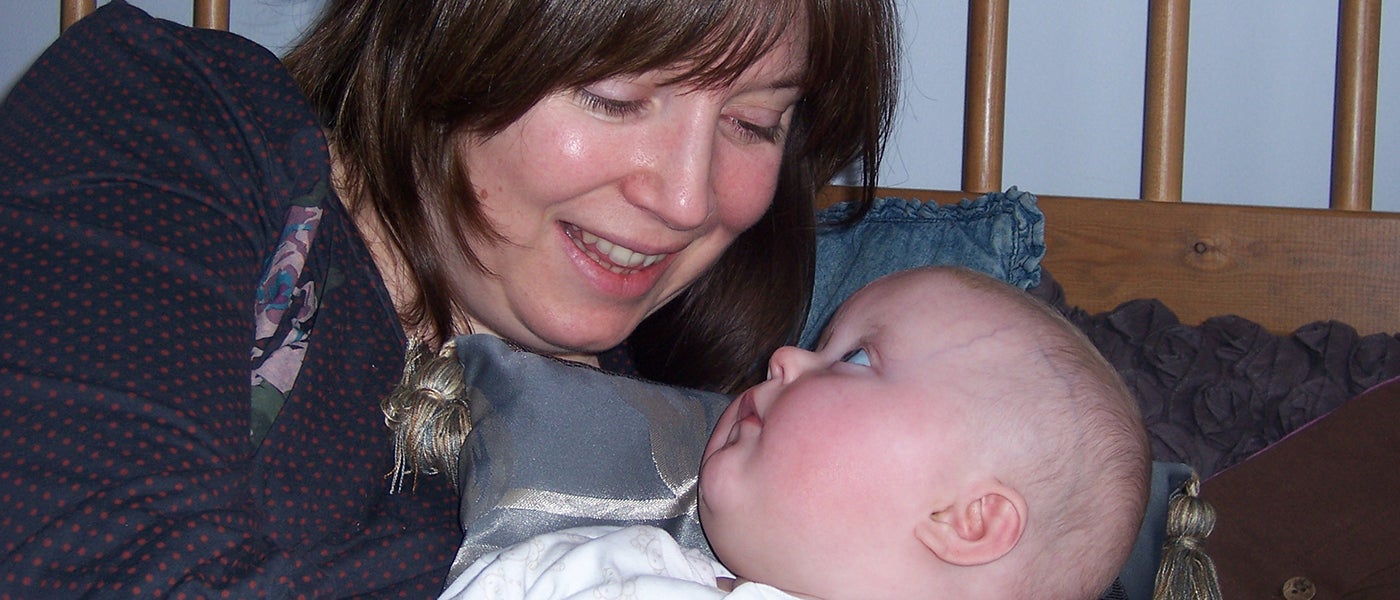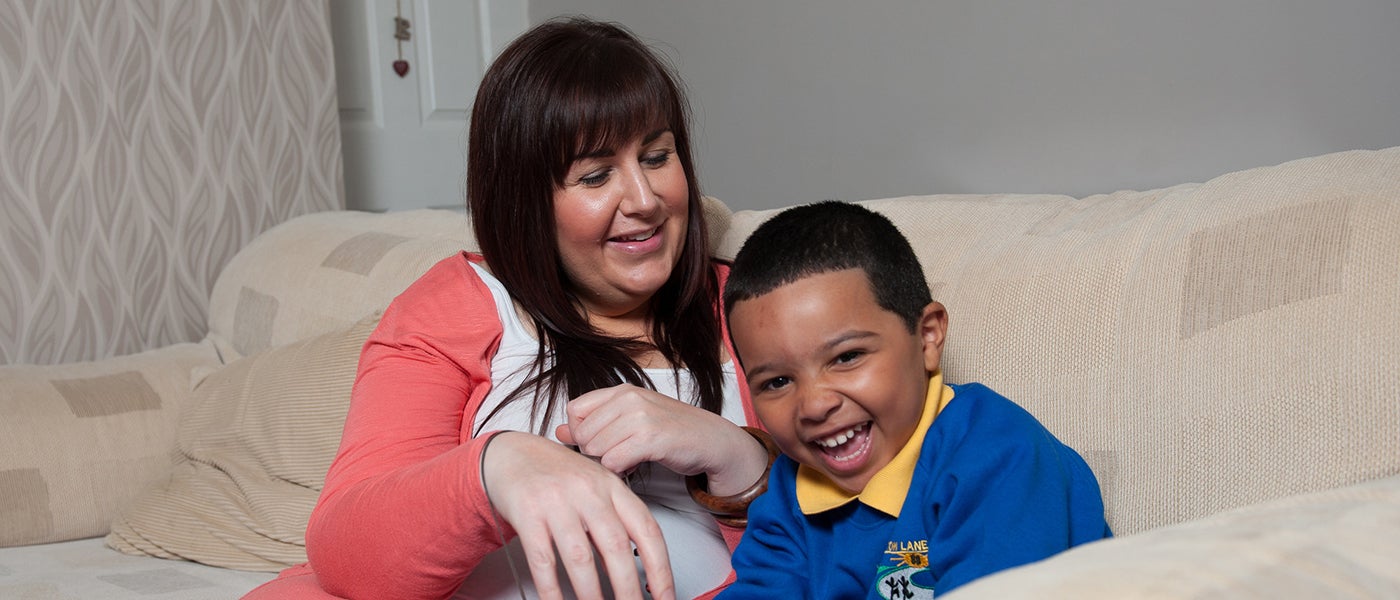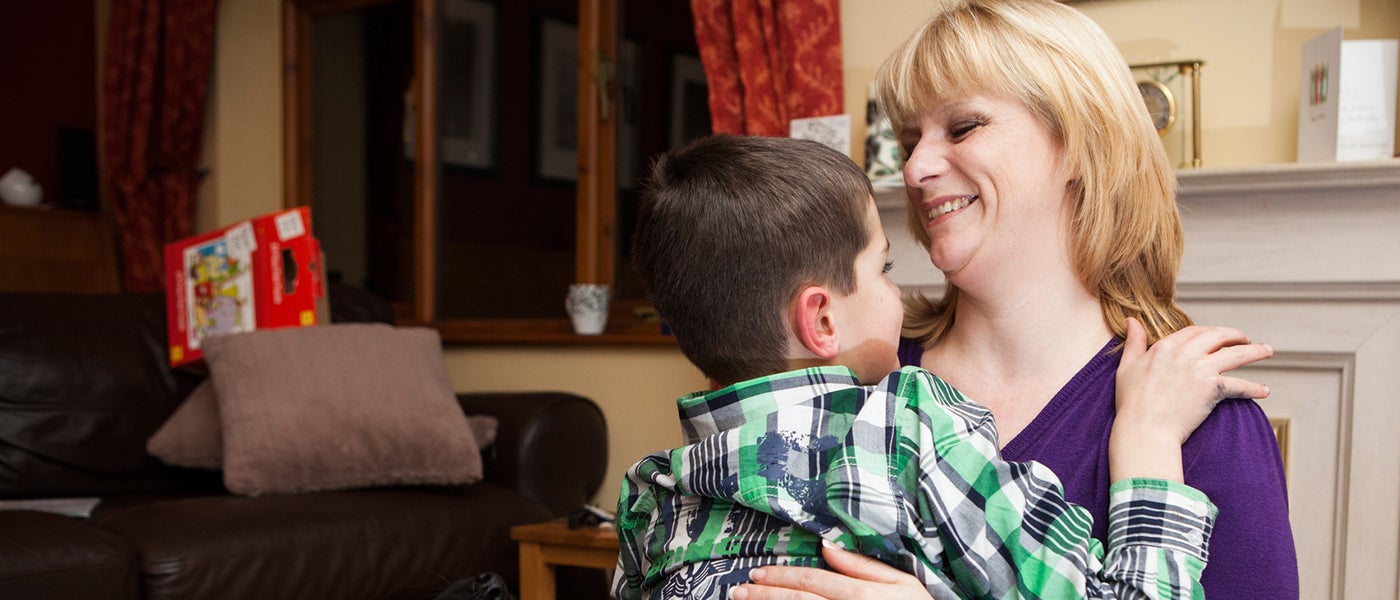- Home
- News and stories
- "Everyone focused on the negatives when Lucy was born."
"Everyone focused on the negatives when Lucy was born."
 27 November 2018
27 November 2018
Lucy was born with a very rare, almost unique condition called an unbalanced translocation. One of her chromosomes is missing a bit off the end and in its place is an extra bit of another chromosome.
Clearly somebody thought there was a problem
I had been trying to conceive after getting married for about three years with no success and went through all of the different tests that you do.
The first round of IVF was unsuccessful. Then we paid for our second round of IVF. We succeeded. We thought, ‘Great. That’s fantastic’. Then at the twenty weeks scan, everything changed. She was too small, there was not enough fluid in the womb. I had the scans twice a week for the remainder of my pregnancy. I also had something called Dopplers every fortnight. Basically, measuring the levels of oxygen and other things, going in to make sure that there’s no placenta lymph insufficiency. We also saw an obstetrician every week, from about 22 weeks. Clearly somebody thought there was a problem.
I had a high-risk pregnancy. When I got to 37 weeks they pushed us into having a C-Section a bit earlier than, perhaps, we should’ve done. She was born at 5 pounds 1 ounce. I bled a lot. I was quite poorly.
I hadn’t held my baby much or seen her enough
When she came out her left leg was above her head. It was a right odd shape because of her hip dysplasia, which they still didn’t know about because they just said she was breech. I wanted, skin-to-skin contact but I only spent about five minutes with her. They took her off to a whole different department in the hospital. She wasn’t even, in the room next door.
A paediatrician stuck her head through the ward curtain and said, ‘I think your baby has got a genetic problem,’ and tried to go away again. I said, ‘What do you mean, like Down’s?’ that was the only genetic condition I knew. She said, ‘Yes, I think your baby has got Down’s Syndrome,’ and then left me. I was on my own for about two hours after that.
I hadn’t held my baby much or seen her enough. I couldn’t feel my legs because of the spinal block, but I persuaded the nurses to let me go with my mum and my husband to see my baby. They had to wheel me to the other bit of the department. I was so physically poorly I was sick when I got back but I was determined to see her, she was tiny but perfect. She was in the high dependency unit (HDU).
I would’ve broken sooner had I not been able to see her
I was in hospital for five days. To be honest I think I would’ve gone stir crazy if I’d stayed any longer in that room. For my own sanity I came home, but having to leave her, I howled like an animal. Coming back without your baby having gone in to have one, it’s absolutely horrendous. The worst experience of my life. My heart and soul were 25 miles away in this hospital where Lucy was in her little cot. Every day we’d go in to see and cuddle her.
You’re not supposed to travel, really, having had a C-Section, you’re not supposed to be in a car travelling, so I got this special scar cover for protection. All the things I did physically were wrong in terms of healing after major surgery, but emotionally I would’ve broken sooner had I not been able to go and see her.
I just lost it
The initial diagnosis side of things came on day two. There was a whole load of stuff going on and it wasn’t handled very well. There was no counsellor there at all. I do think that was a bit odd.
When she was born there was a paediatrician there. He said she had ‘Dysmorphic features’ which I took to mean he thought she was funny looking. To be told that when you’re literally high on drugs because you’ve just got the morphine flowing through you, I just lost it. He should’ve known better than to say that.
You can’t even see your child. They’re in a completely different room in a different ward. Somebody you haven’t even met has said these things about your kid and you think maybe they’ve got it wrong. I went into, sort of, pretty much denial.
The system seems to write off your child
I know she understands what we’re saying and we understand what she wants. I can’t describe it, really, apart from that. Everybody who knows her loves her. She’s a very warm personality and funny, a wicked sense of humour. These are qualities I don’t think I saw at first because everyone focused on the negatives. Certainly nobody told me about these and we had to just find out ourselves.
That’s the point. The real shame that at the beginning, the system seems to write off your child, particularly with learning disabilities. It’s all focused on what they’re going to be able to achieve. You know, job, marriage, that we have put categories on those as valuing, as important. It’s society that makes it difficult.
She’s just won a Triumph Over Adversity award. She got picked out of thirty in her age group in the category. She’s just incredible. She has this depth of soul, just having suffered so much. She has a bravery that is truly empowering to be around and a forgiveness, as well.
I really wish somebody had told me that beforehand. ‘You are going to enjoy this kid. Yes, it’s going to be hard work, physical hard work,’. I wish there’d been more out there saying, ‘This is an opportunity. You, your husband, your family, your friends and everybody that comes in to contact with her will grow into better human beings because of this experience.’ I know that sounds really rather profound, but it’s genuinely true.
41 percent of families aren’t offered emotional support during their child’s diagnosis and become increasingly isolated. Become a #DisabilityGamechanger and donate today and help Scope provide services for families and provide the vital support they need.
 27 November 2018
27 November 2018







